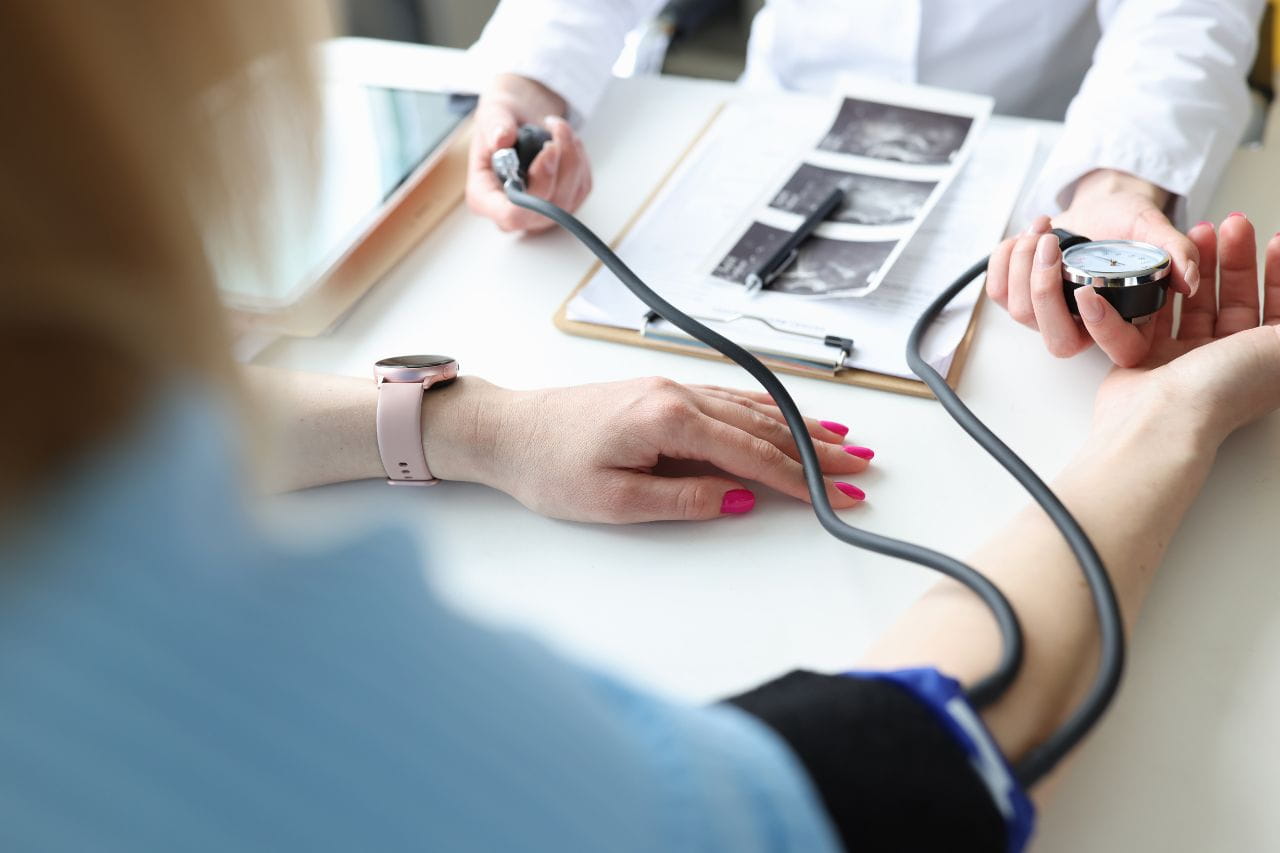Understanding Eclampsia

Clinically reviewed by Amanda Wilkins, MSN, RNC, IBCLC
Eclampsia is a rare but serious condition where high blood pressure during pregnancy causes seizures and other symptoms. Eclampsia follows a condition called preeclampsia and affects approximately 1 in 200 women who have it.
This article explains some eclampsia symptoms, causes, risk factors, and treatment. This is not an exhaustive list, so if you experience any new or worsening symptoms, always seek out advice from your medical provider.
Eclampsia Symptoms
Eclampsia causes three primary symptoms:
- Seizures
- Agitation
- Loss of consciousness
Because eclampsia and preeclampsia are closely related, it’s also essential to know the symptoms of the latter, which include:
- Severe headaches
- Light sensitivity, blurred vision, and temporary vision loss
- Abdominal pain, especially under the ribs on the right side
- Shortness of breath
- Swelling in your hands and face
- Nausea and vomiting
- Excessive weight gain
- Trouble urinating
- Hypertension (high blood pressure) of 140/90 mm Hg or greater
- Proteinuria (excess protein in your urine)
Other conditions, like diabetes and kidney disease, can cause some of these symptoms, so it’s important to tell your doctor about your health conditions.
What Causes Eclampsia?
Doctors aren’t sure what causes eclampsia or preeclampsia. However, there’s speculation that it’s associated with abnormal development and functioning of the placenta.When preeclampsia’s impacts on blood pressure and kidney function grow, and your symptoms worsen to the point that they affect your brain and cause seizures, you are diagnosed with eclampsia.
Eclampsia Risk Factors
You’re more likely to develop eclampsia if you have one or more of the following risk factors:
- Preeclampsia
- First-time pregnancy
- Being younger than 20 or older than 40
- Kidney disease
- Chronic or gestational hypertension (high blood pressure)
- Diabetes
- Any health conditions that affect the blood vessels
- Obesity
- Expecting multiples
Again, you should talk with your doctor about your health history if you become pregnant.
Eclampsia Diagnosis and Treatment
If you have preeclampsia or don’t have it but are suffering from seizures, your doctor will order tests to determine the cause of those episodes. These include blood tests (to assess blood cell and platelet counts, clotting, etc.), creatine tests (to look for an excessive amount in the blood), and urine tests (to check for protein and measure your excretion rate).If you have mild preeclampsia, your doctor may prescribe medication to keep it from developing into eclampsia. If your provider diagnoses you with eclampsia, they may recommend hospitalization, monitoring, medication to help your baby’s lungs mature more quickly, and delivering your baby as early as possible.
Preeclampsia and eclampsia typically resolve within a few days or weeks after delivery. Your care team will check your postpartum blood pressure to ensure it has returned to a normal level. You should also be vigilant for postpartum preeclampsia, which can develop as long after childbirth as six weeks.
Eclampsia and Your Baby
Preeclampsia and eclampsia affect the placenta, which delivers oxygen and nutrients from your blood to the baby. This can result in low birth weight, other health problems, and in rare instances, stillbirth.But your care team is aware of these risks and will closely monitor your and your baby’s health at appointments throughout and after your pregnancy.
Learn About Mother and Baby Care at Baptist Health
Eclampsia is a severe condition, but your Baptist Health doctor and care team know how to address it effectively.Learn more about our mother and baby care services today.



